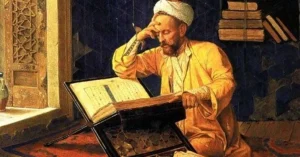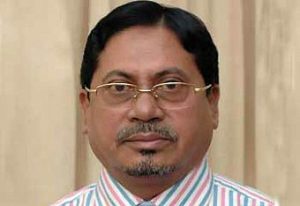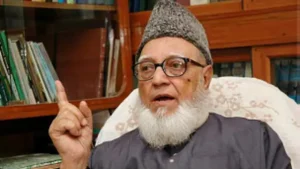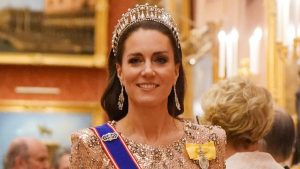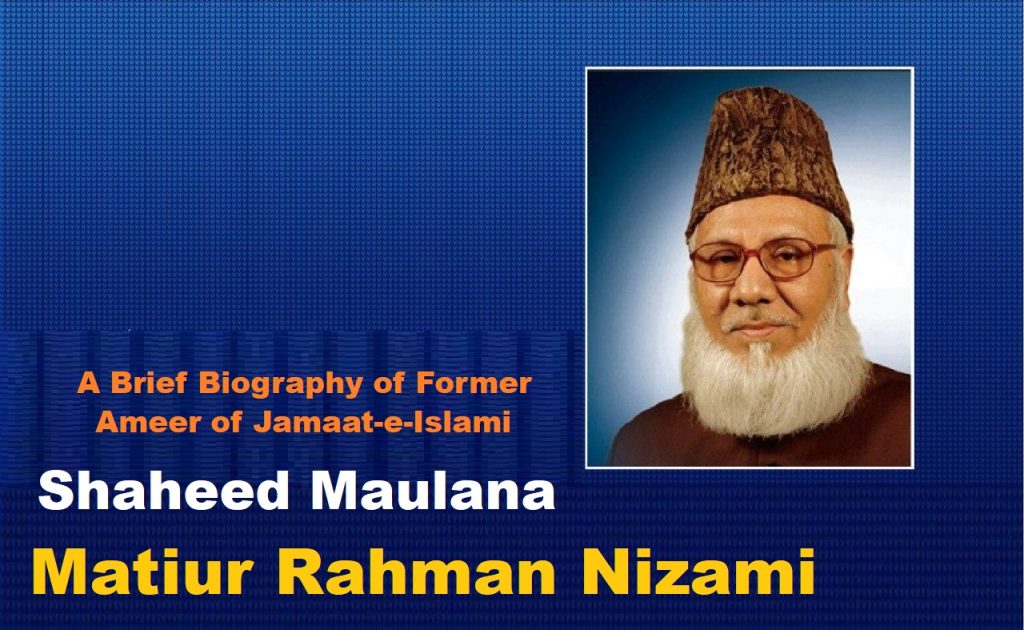
Shaheed Maulana Matiur Rahman Nizami
Shaheed Maulana Matiur Rahman Nizami: Brief Biography of Former Jamaat-e-Islami Ameer.
01
Maulana Matiur Rahman Nizami was a divinely gifted personality—an embodiment of clarity in thought, simplicity in lifestyle, and profound humility in demeanor. He was soft-spoken, polite, refined, gentle, and possessed of a deeply spiritual Islamic character. He served as the former Ameer (leader) of Bangladesh Jamaat-e-Islami, a beloved party of the peace- and freedom-loving people, and was one of the foremost political figures in Bangladesh. A respected Islamic scholar, intellectual, prolific writer, and a spiritual mentor to Islam-loving people, he was also a prominent figure in the global Islamic movement. In 2015, he was named among the world’s 500 most influential Muslims by the renowned American organization, The Royal Islamic Strategic Studies Centre.
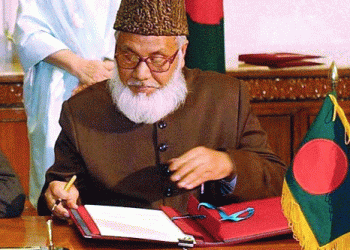
02
From his student days, Maulana Nizami played a bold and leading role in all lawful and democratic movements in Bangladesh, starting with the anti-Ayub dictatorship movement. His firm stance for public rights and democratic activism helped enhance Bangladesh’s dignity on the international stage. He was elected Member of Parliament twice—in 1991 and 2001—with a significant number of votes. During the 2001–2006 period, he served as the Minister of Agriculture and later as the Minister of Industries. In both roles, he earned widespread recognition as an honest, efficient, and amiable leader. Over a long political career spanning 45 years, Maulana Nizami’s selfless dedication to the welfare of the people earned him a permanent place in the hearts of the nation as a beloved leader.
03
Maulana Matiur Rahman Nizami was sentenced to death based on fabricated and politically motivated charges—a verdict widely condemned as a dark chapter in judicial history. No official report, investigation, or General Diary (GD) mentioned his name in connection with 1971 war crimes during the post-independence era. Even Sheikh Hasina and Awami League leaders held joint press conferences and movements with him between 1992 and 1996, especially regarding the caretaker government system. In 1996, the Awami League even sought Jamaat’s support to form the government and elect their presidential candidate—yet no one then labeled him a war criminal. As many rightly observe: in alliance, you’re a partner; in opposition, you’re a criminal.
04
Maulana Nizami’s only “crime” was his leadership of the Islamic movement and his uncompromising commitment to principles. His politics transcended narrow personal and party interests. He stood firmly for the people of Bangladesh and the broader Muslim Ummah. Those seeking to make Bangladesh a client state saw Maulana Nizami and his party, Jamaat-e-Islami, as the greatest obstacle to their agenda. Thus, they maliciously conspired to eliminate this widely respected, people-centered leader through a politically motivated show trial, with false charges and fabricated witnesses. Despite criticism and appeals from the United Nations, international law experts, human rights organizations, prominent Islamic figures, and various global leaders—not to carry out the execution—this oppressive regime brutally murdered him.
The state execution of such a transparent and senior political figure was a heart-wrenching, shameful, and tragic event for the citizens of Bangladesh who believe in tolerance and harmony. Maulana Nizami’s execution inflicted a deep wound on the Muslim Ummah—a premeditated, unforgivable, and unprecedented mistake by the current Awami League government that will remain condemned for generations to come.
Birth and Education
Maulana Matiur Rahman Nizami was born on March 31, 1943, in Monmathpur village, Sathia Upazila, Pabna District. His father, the late Lutfur Rahman Khan, was a man of dignity and deep faith in Allah. He began his education at Monmathpur Primary School. He then studied at Boailmari Madrasa in Sathia and later at Taha Senior Madrasa in Shibpur, Pabna, passing the Alim examination with first division, ranking 16th in the entire board. In 1961, he passed the Fazil examination from the same madrasa with first division.
In 1963, he completed the Kamil (advanced Islamic studies) degree in Fiqh from the prestigious Madrasa‑e‑Alia in Dhaka under the Madrasa Education Board, securing second place in the first class across the board. He later enrolled at the University of Dhaka, graduating with honors in 1967.

